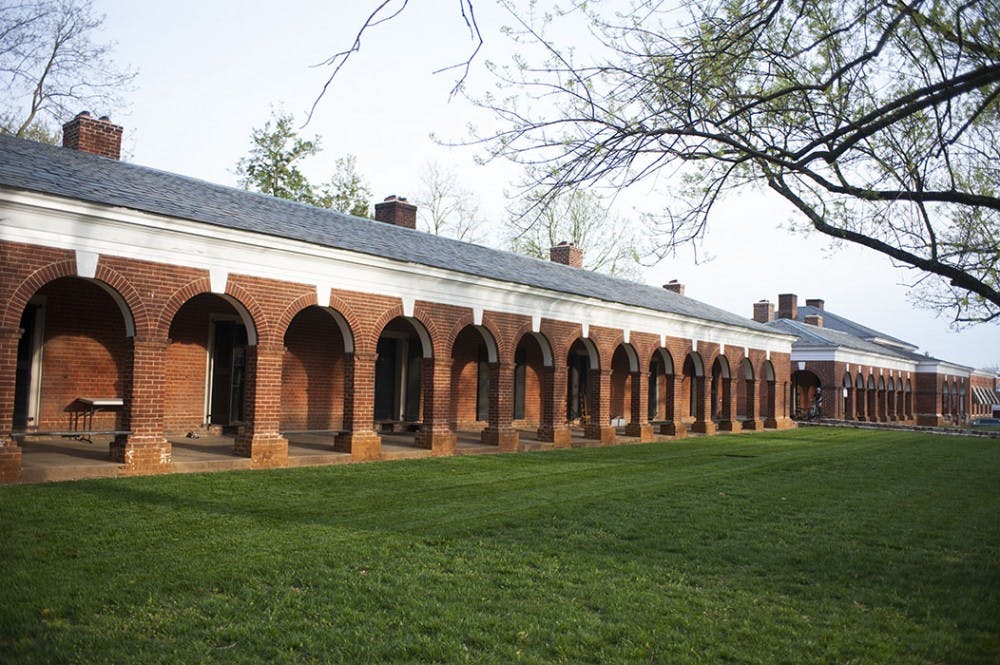The Range is part of the University’s Academical Village. It is proximate to the Lawn and similar in appearance. Only graduate students, however, may apply to live in the space.
Graduate students apply to live in one of 51 rooms on the Range each year. There are typically between 70 and 100 applications each year, said Elizabeth Walker, the vice chair for selections at the Range.
The housing rate for the 2015-16 year is $710 per month.
Over 250 undergraduates applied to live on the Lawn for the 2015-16 academic year.
“I imagine that there are many reasons for the varying levels of awareness surrounding the Range,” Walker said in an email statement. “But I would posit that it has to do with the fact that the Range is intended for graduate students.”
Walker enumerated three reasons graduate students may not apply for the Range.
Graduate students may not have the financial ability to live on the Range, may be unaware of the Range until arriving in Charlottesville, and may not have an interest in living in a less typical graduate student residence, she said.
The Lawn is considered a central part of the University undergraduate experience — which is not necessarily the case with graduate students and the Range, Walker said.
“For a grad student, school becomes a very different experience that may not need to be heavily influenced by the University culture,” Walker said.
The application process is the same for all applicants, regardless of whether or not they attended the University as an undergraduate.
Currently, there are 10 graduate students living on the Range who completed their undergraduate degree at the University, but are not enrolled in a five-year masters program. Walker said there are five Commerce school graduate students, six accelerated Batten students and two graduate Batten students.
The selection committee only does a spring selection process for the upcoming fall semester. The committee holds a series of events in order to encourage graduate students to apply, Walker said.
“We value personal interaction very highly when considering applicants,” Walker said. “If a meeting is not physically possible, this is, of course, not held against the applicant.”
There is also a written application involved in the process of applying to live on the Range. Application season ends at the end of April, when the Selections Committee has a meeting in which it compiles all parts of the application, including the event attendance and the written application, and determines who will be offered a spot for the upcoming year. The Range has a rubric which it uses to guide the process, but Walker said it is a very collective, organic process invested in personal interaction.
“The Selections Committee is intended to reflect the desires of the Range as a whole,” Walker said. “So the application process is very much rooted in the Range Community itself.”
The demographics of the Range are heavily influenced by who applies and who accepts, Walker said.







